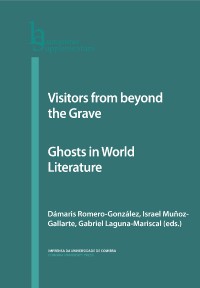Please use this identifier to cite or link to this item:
https://hdl.handle.net/10316.2/47497| Title: | “Phantom Ladies” and “Ghost Gallants”: the motif of supernatural lovers in the Spanish golden age theatre | Authors: | Zapatero Molinuevo, Ane | Keywords: | Comedy;lie;supernatural;gender differentiation;Calderón de la Barca | Issue Date: | 2019 | Publisher: | Imprensa da Universidade de Coimbra | Abstract: | Spanish Golden Age plays about a supernatural lover are usually considered regular situation comedies, but also make up a subgroup among them. In this particular type of comedy, the galán (gallant) or the dama (lady) assumes the disguise of a ghost or another magical creature in order to overcome an obstacle that hinders their love relationship. Moreover, the gender of the disguised character is the key to analysing the two ways in which the motif of the supernatural lover displays itself in Golden Age plays. On the basis of a comparison between two plays by Calderón featuring this motif from the two approaches, female and male disguised characters —La dama duende (The phantom lady) and El galán fantasma (The ghost gallant)— and using examples from other plays in which it is also used, this chapter tries to analyse and explain these two ways in which the motif of the supernatural lover displays itself in the 17th century Spanish Theatre. | URI: | https://hdl.handle.net/10316.2/47497 | ISBN: | 978-989-26-1765-7 (PDF) 978-989-26-1763-3 |
DOI: | 10.14195/978-989-26-1765-7_11 | Rights: | open access |
| Appears in Collections: | Visitors from beyond the grave: ghosts in world literature |
Files in This Item:
| File | Description | Size | Format | |
|---|---|---|---|---|
| _phantom_ladies__and__ghost_gallants_.pdf | 318.5 kB | Adobe PDF |  |
Items in DSpace are protected by copyright, with all rights reserved, unless otherwise indicated.
